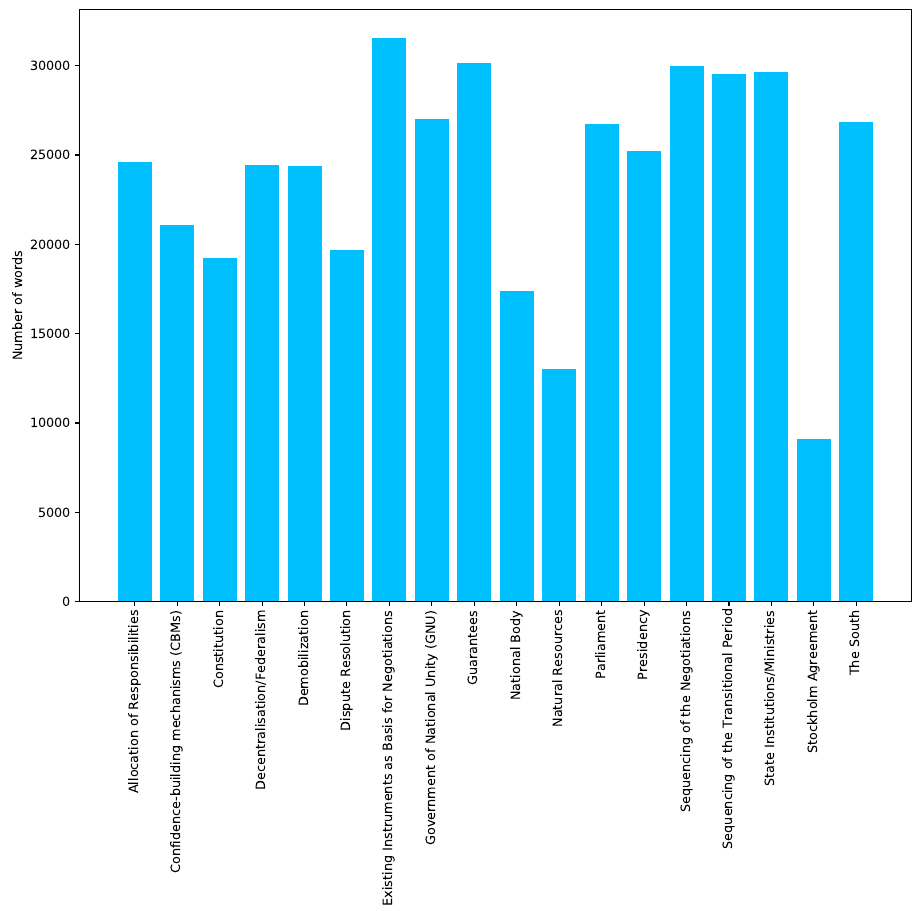Today's conflicts are becoming increasingly complex, fluid and fragmented, often involving a host of national and international actors with multiple and often divergent interests. This development poses significant challenges for conflict mediation, as mediators struggle to make sense of conflict dynamics, such as the range of conflict parties and the evolution of their political positions, the distinction between relevant and less relevant actors in peace making, or the identification of key conflict issues and their interdependence. International peace efforts appear increasingly ill-equipped to successfully address these challenges. While technology is being increasingly used in a range of conflict related fields, such as conflict predicting or information gathering, less attention has been given to how technology can contribute to conflict mediation. This case study is the first to apply state-of-the-art machine learning technologies to data from an ongoing mediation process. Using dialogue transcripts from peace negotiations in Yemen, this study shows how machine-learning tools can effectively support international mediators by managing knowledge and offering additional conflict analysis tools to assess complex information. Apart from illustrating the potential of machine learning tools in conflict mediation, the paper also emphasises the importance of interdisciplinary and participatory research design for the development of context-sensitive and targeted tools and to ensure meaningful and responsible implementation.
翻译:今天的冲突日益复杂、多变和支离破碎,往往涉及一系列具有多重和往往不同利益的国家和国际行为者,这种发展对冲突调解构成重大挑战,因为调解人努力理解冲突动态,例如冲突各方的范围及其政治立场的演变,在建立和平过程中相关和不太相关的行为者之间的区别,或确定关键的冲突问题及其相互依存性。国际和平努力似乎越来越没有能力成功地应对这些挑战。虽然技术正越来越多地用于一系列冲突相关领域,例如冲突预测或信息收集,但对技术如何有助于冲突调解却没有给予更多的注意。这一案例研究首先将最先进的机器学习技术应用于正在进行的调解进程中的数据。这项研究利用也门和平谈判的对话记录,表明机器学习工具如何通过管理知识和提供更多的冲突分析工具来有效地支持国际调解人评估复杂的信息。除了说明机器学习工具在冲突调解中的潜力外,文件还强调了为开发对情况敏感和有针对性的工具以及确保有意义和负责任的实施而进行多学科和参与性研究的重要性。
























